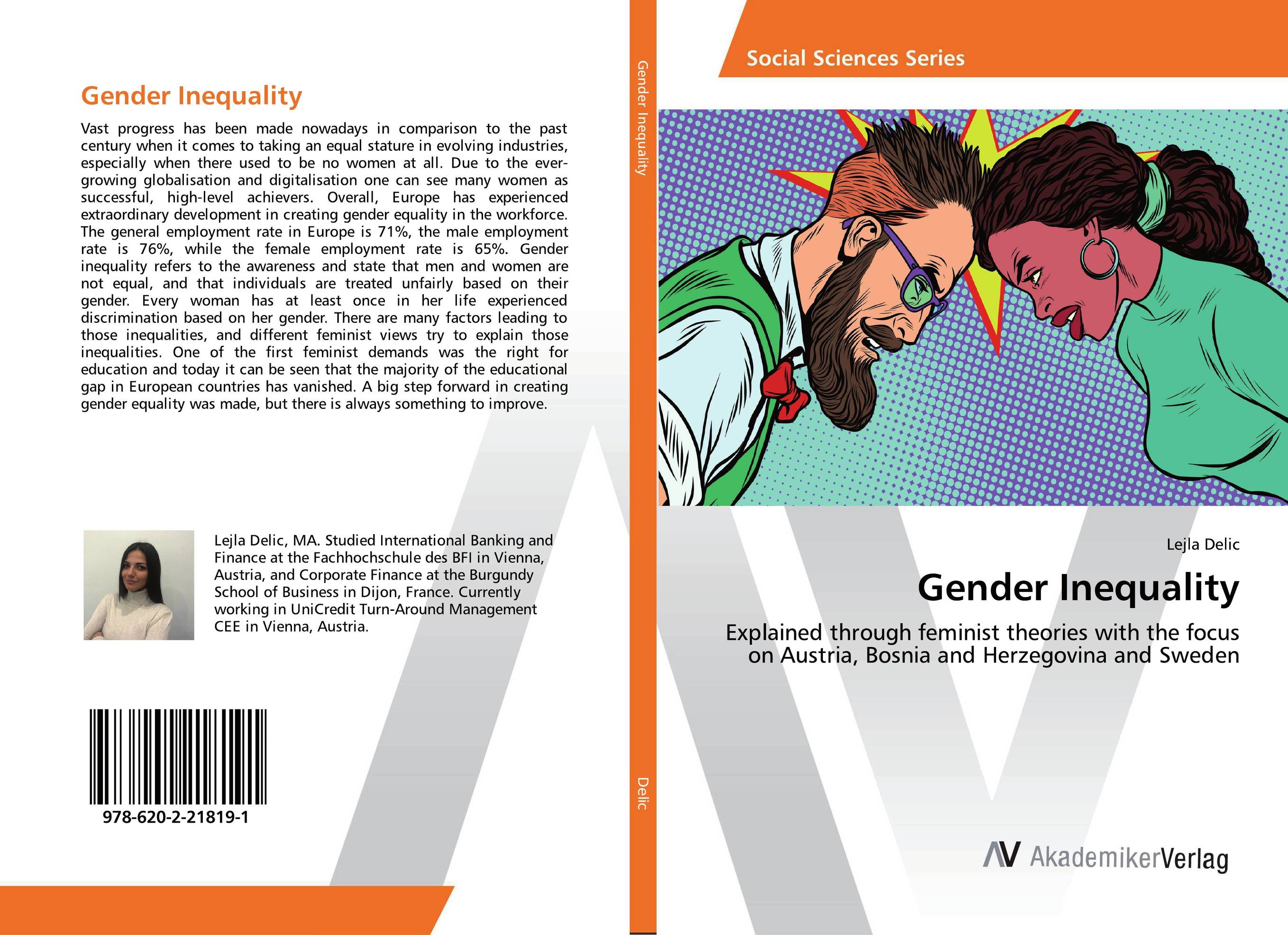| Поиск по каталогу |
|
(строгое соответствие)
|
- Профессиональная
- Научно-популярная
- Художественная
- Публицистика
- Детская
- Искусство
- Хобби, семья, дом
- Спорт
- Путеводители
- Блокноты, тетради, открытки
Gender Inequality. Explained through feminist theories with the focus on Austria, Bosnia and Herzegovina and Sweden

В наличии
| Местонахождение: Алматы | Состояние экземпляра: новый |

Бумажная
версия
версия
Автор: Lejla Delic
ISBN: 9786202218191
Год издания: 2018
Формат книги: 60×90/16 (145×215 мм)
Количество страниц: 112
Издательство: AV Akademikerverlag
Цена: 23604 тг
Положить в корзину
| Способы доставки в город Алматы * комплектация (срок до отгрузки) не более 2 рабочих дней |
| Самовывоз из города Алматы (пункты самовывоза партнёра CDEK) |
| Курьерская доставка CDEK из города Москва |
| Доставка Почтой России из города Москва |
Аннотация: Vast progress has been made nowadays in comparison to the past century when it comes to taking an equal stature in evolving industries, especially when there used to be no women at all. Due to the ever-growing globalisation and digitalisation one can see many women as successful, high-level achievers. Overall, Europe has experienced extraordinary development in creating gender equality in the workforce. The general employment rate in Europe is 71%, the male employment rate is 76%, while the female employment rate is 65%. Gender inequality refers to the awareness and state that men and women are not equal, and that individuals are treated unfairly based on their gender. Every woman has at least once in her life experienced discrimination based on her gender. There are many factors leading to those inequalities, and different feminist views try to explain those inequalities. One of the first feminist demands was the right for education and today it can be seen that the majority of the educational gap in European countries has vanished. A big step forward in creating gender equality was made, but there is always something to improve.
Ключевые слова: Gender inequality, Gender Equality, Gender Pay Gap, wage gap, stereotyping, cognitive bias, Feminist Theory, liberal feminism, radical feminism, Employment, education



